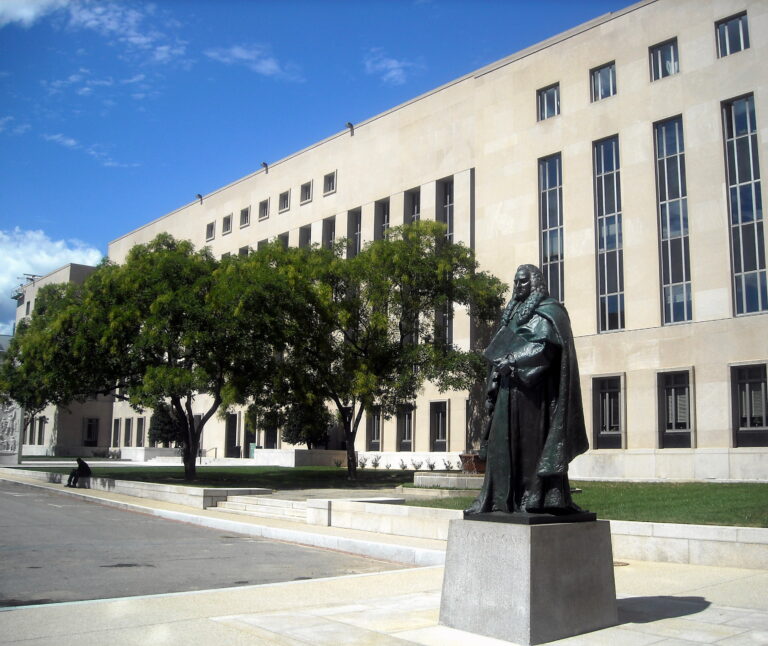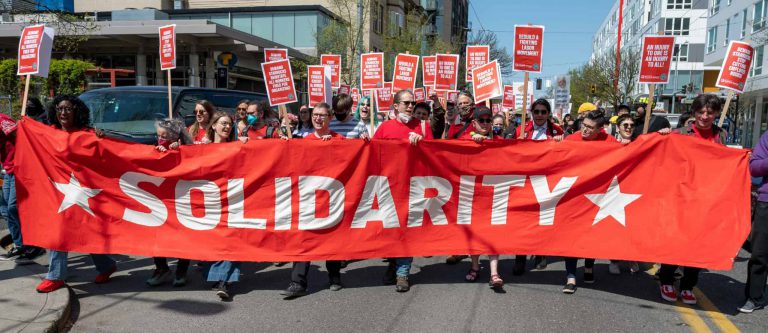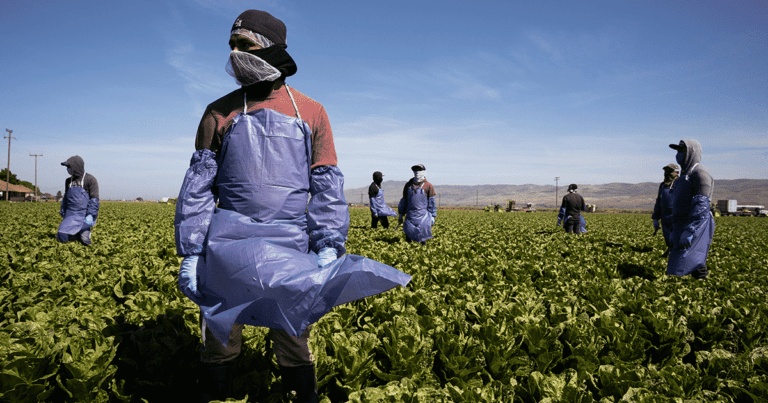Maddy Joseph is a student at Harvard Law School.
Trump officially announced new tariffs on imported steel and aluminum yesterday, with industry workers standing on as he signed the proclamation. As many have reported, the tariffs are billed as a measure to protect American manufacturing workers, but the steel and aluminum industries don’t employ many, and other manufacturing industries could strain under higher prices for foreign steel and aluminum.
The Democratic Party is hurt by right to work laws, a piece in the Times by public policy scholars and an economist concludes. The authors took a quantitative look at how vote trends in adjoining counties across state lines diverge after one state passes a right to work law. After an anti-union law, the makeup of a state legislature also changes, with fewer legislators supporting policies like a higher minimum wage.
The NLRB’s joint employment controversy continues. Bloomberg reports a last ditch-effort by Hy-Brand Industrial Contractors, the company at the center of the NLRB’s most recent but now-vacated joint employment ruling. Hy-Brand will ask the Board to re-examine its decision to vacate, alleging that several members improperly shut Member William Emanuel out of the decisionmaking process days before the initial ruling. The NLRB vacated the initial ruling after the Board’s Inspector general found that Emanuel should have recused himself from participation in the case because of a conflict of interest.
The end of the West Virginia teachers’ strike brought stories about the strike’s origin and meaning. A piece in the Times describes why rank-and-file members decided to break with union leadership to continue striking and argues that labor turns to activism when unions are weakened. Buzzfeed looked into the pivotal role Facebook played in the organizing; the Times echoed this in a broader story about the planning preceding the strike. Finally, in the Times and Dissent, Sarah Jaffe puts the strike in the context of the storied and militant labor history of West Virginia.






Daily News & Commentary
Start your day with our roundup of the latest labor developments. See all
April 17
Utahns sign a petition supporting referendum to repeal law prohibiting public sector collective bargaining; the US District Court for the District of Columbia declines to dismiss claims filed by the AFL-CIO against several government agencies; and the DOGE faces reports that staffers of the agency accessed the NLRB’s sensitive case files.
April 16
7th Circuit questions the relevance of NLRB precedent after Loper Bright, unions seek to defend silica rule, and Abrego Garcia's union speaks out.
April 15
In today’s news and commentary, SAG-AFTRA reaches a tentative agreement, AFT sues the Trump Administration, and California offers its mediation services to make up for federal cuts. SAG-AFTRA, the union representing approximately 133,000 commercial actors and singers, has reached a tentative agreement with advertisers and advertising agencies. These companies were represented in contract negotiations by […]
April 14
Department of Labor publishes unemployment statistics; Kentucky unions resist deportation orders; Teamsters win three elections in Texas.
April 13
Shawn Fain equivocates on tariffs; Trump quietly ends federal union dues collection; pro-Palestinian Google employees sue over firings.
April 11
Trump considers measures to return farm and hospitality workers to the US after deportation; Utah labor leaders make final push to get the “Protect Utah Workers” referendum on the state’s ballot; hundreds of probationary National Oceanic and Atmospheric Administration employees were re-terminated